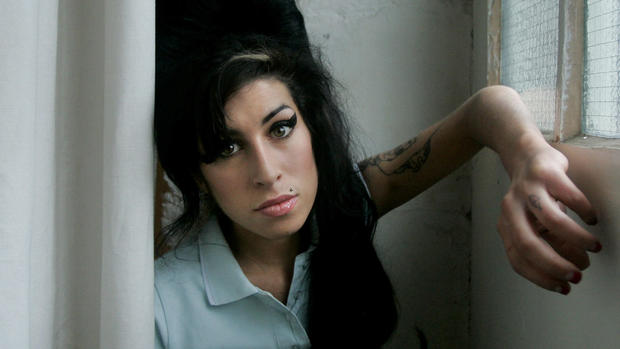Amy Winehouse director: We all share blame for her death
Amy Winehouse was many things: artist, icon, victim of celebrity. For London-born director Asif Kapadia, she was basically the girl next door.
Kapadia, who made award-winning documentary "Senna" about Formula 1 driver Ayrton Senna, lived and worked in some of the same north London neighborhoods as Winehouse. Like millions of others, he also watched with horrified fascination as the singer's struggles with love, drugs and alcohol were splattered across the media in the years before her death from alcohol poisoning in 2011.
"I very much felt, 'I can't believe this is happening down the road from where I live,'" said Kapadia, whose documentary about Winehouse, "Amy," is playing at the Cannes Film Festival. "One of my reasons for wanting to do it was, I've finally found a subject to do about home.
"Senna was like from another planet, and Amy was from next door.
"She was so ordinary, so local, and so brilliant in the way she expressed that in her lyrics."
London was Winehouse's inspiration -- for good and bad.
"I love the city," Kapadia said, sitting in a luxury hotel on the French Riviera. "I love the creativity. I love the fact you can look like what you want to look like, do whatever the hell you want, you can be amazing. But it's got a darkness to it, and her story sort of covers those ends of the spectrum."
Compiled from archive footage, home movies and more than 100 interviews with people who knew Winehouse, "Amy" is partly a tribute to a lost talent, partly a portrait of a young woman coping with depression and doubt, and partly a reflection on the toxic nature of celebrity.
The film has been acclaimed in Cannes, where it premiered in the late-night Midnight Screenings slot -- the first time Kapadia had seen the movie with an audience.
"It was very emotional," Kapadia said. "A lot of tears. Nobody moved for the last hour."
There are some dissenters amid the praise. Winehouse's parents appear in the film but have recently criticized it, calling it "unbalanced" and saying it suggests family members did too little to help the singer overcome her addictions.
Kapadia says he did not set out to blame anyone for Winehouse's death.
"I'm not pointing the finger, I'm just saying this is really complicated," he said. "But there are issues, and there are maybe things that could have been done differently.
"It's turning the mirror on everyone, saying, we're all slightly to blame, complicit, a part of this system -- this circus -- that it became."
He hopes members of the family will come to see the film the way he does -- as a rounded portrait of Winehouse, and a tribute to her.
"I'm hoping with a bit of hindsight that there'll be a rethinking of it. Not to take things personally but to just say, look, people love her, that's the thing. It's about her and kind of rebalancing everyone's image of her."
The film gives ample time to Winehouse's music, from the jazz sounds on her first album, "Frank," to the soul and hip-hop influences that infused her breakthrough record, "Back to Black."
The single "Rehab" was her biggest hit, and also something of an albatross. Winehouse was constantly asked to perform the song about how "They tried to make me go to rehab -- I said no, no, no."
Kapadia said that in retrospect the song sounds like "an incredible cry for help."
"The clue is always in her songs," he said. "Two songs: 'Stronger Than Me' -- 'I want someone who's stronger than me' -- and 'Love is a Losing Game,' sum her up. If she had those two elements, then maybe there would have been some peace."


